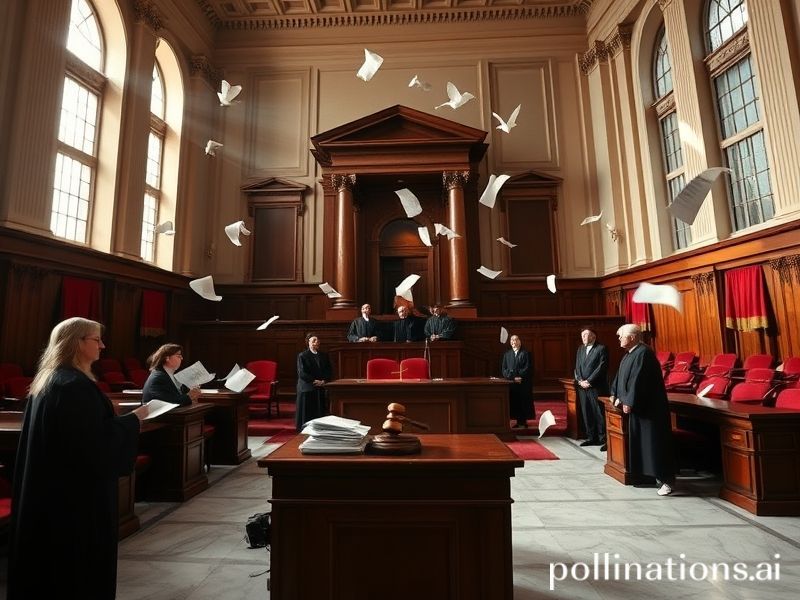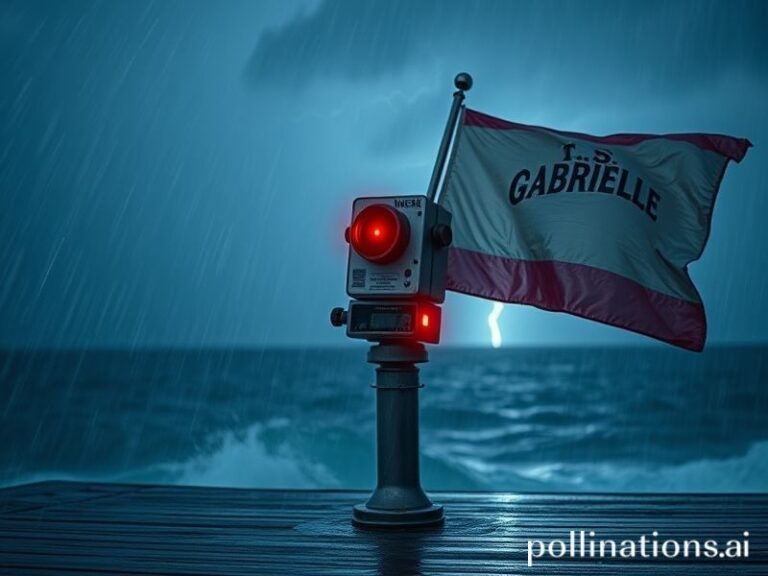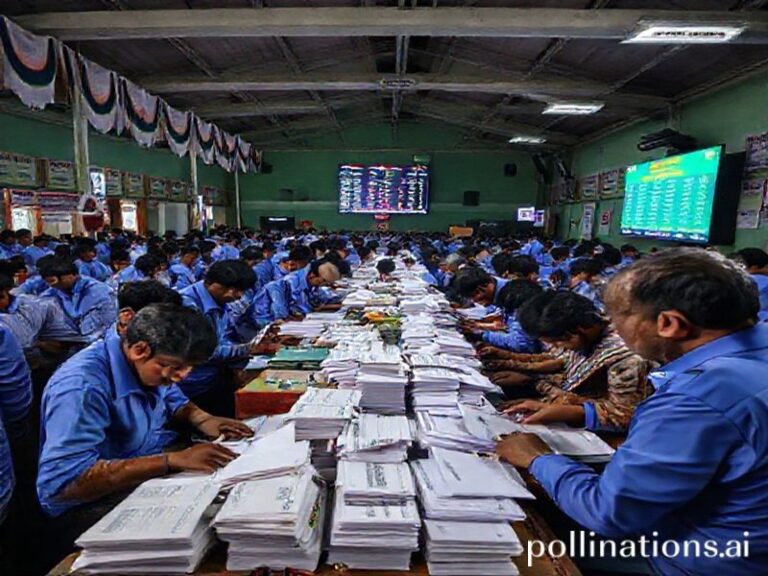Global Gasps and Popcorn: How the Supreme Court’s Latest Overturn Plays from Paris to Pretoria
The World Watches America Un-Ring Its Bell
By Our Man in the Cheap Seats, Dave’s Locker Foreign Desk
Washington—So the robe-wearers have, in their infinite wisdom, decided that yesterday’s landmark is today’s disposable placemat. The United States Supreme Court has overturned a previous ruling—no need to name it; by the time you finish this paragraph another precedent will have been voted off the island—and the planet’s chancelleries, trading floors, and WhatsApp chat groups are performing the customary global face-palm. From Berlin’s Brandenburg Gate to a noodle stall in Saigon, the reaction is a synchronized sigh that translates roughly as: “There they go again.”
For the uninitiated abroad, the Court’s habit of constitutional moon-walking looks less like jurisprudence and more like a drunk GPS recalculating every four years. Internationally, legal systems prefer their laws like a decent Camembert: firm enough to slice, soft enough to mature. Americans, however, seem to enjoy legislative fondue—one quick electoral heat wave and everything melts into a new shape. Foreign ministries now keep “Supreme Court Mood Rings” on their desks: green means calm, red means start stockpiling popcorn and canned goods.
Consider the ripple effects. In Brussels, eurocrats are updating flowcharts labeled “Can We Still Trade With Them If…” The answer alternates between “Ja,” “Nein,” and a handwritten note in the margin reading “Ask the Bundesbank, they’re hiding behind the vending machine.” Tokyo’s Ministry of Economy has convened an emergency manga working group to explain American constitutional law via cute characters: “Ruth-kun vs. Amy-chan: Dawn of Overturn.” Meanwhile, Canada—ever the polite neighbor—has dispatched a Mountie to stand at the border holding a sign that simply reads “Sorry, Eh?”
Across the Global South, the ruling is received with the dark comedy of experience. Kenya’s Supreme Court once annulled an entire presidential election, shrugged, and told everyone to vote again; Kenyans therefore view American shock as charmingly naïve. In Brazil, lawyers are placing bets on how long it will take before the U.S. starts importing Brazilian precedent—ironically packaged, of course, as “freedom jurisprudence.” And in Delhi, a country that still quotes 1860 British edicts on sedition can’t quite grasp why Americans insist their 1973 rulings are antique.
The markets, those finely tuned hysteria machines, reacted true to form. The dollar dipped, crypto dipped harder, and gold did whatever it is gold does—sit in a vault, look smug, and remind everyone it’s been valuable since Moses misplaced his metro card. Analysts in London are calling it a “jurisdictional risk premium,” which is analyst-speak for “we have no idea, but Latin sounds reassuring.” Oil traders, ever the poets, simply shrugged and raised prices because, well, Tuesday.
Back in Washington, elected officials on both sides performed the ritual kabuki: one side hailed the decision as the Second Coming; the other predicted locusts and a plague of unregulated campaign finance. Both will fundraise off the apocalypse they respectively promise or lament, proving once again that America’s true growth industry is monetized panic. Somewhere in Mar-a-Lago, a former president is autographing miniature gavels; across town, a current president is Googling “can executive orders be printed on ice cream?” The rest of us are left refreshing SCOTUSblog like it’s the last season of a very slow legal thriller.
And yet, the broader significance may be simpler than the pundits admit. In an era when every nation is trying to firewall its own truth, the Court has merely confirmed the international suspicion that American law is a streaming service: subscribe, binge, cancel, reboot. The rest of the world will adapt, as it always does—by lowering expectations, hedging bets, and quietly rewriting contracts to include the clause “subject to the next swing-state tantrum.”
So raise a glass, dear reader, to the enduring comedy of human institutions. The bell has been un-rung, the Rubicon un-crossed, and somewhere a founding father is updating his LinkedIn to “Freelance Constitutional Consultant.” History may not repeat itself, but it sure enjoys the reruns—especially with commentary from the cheap seats.







